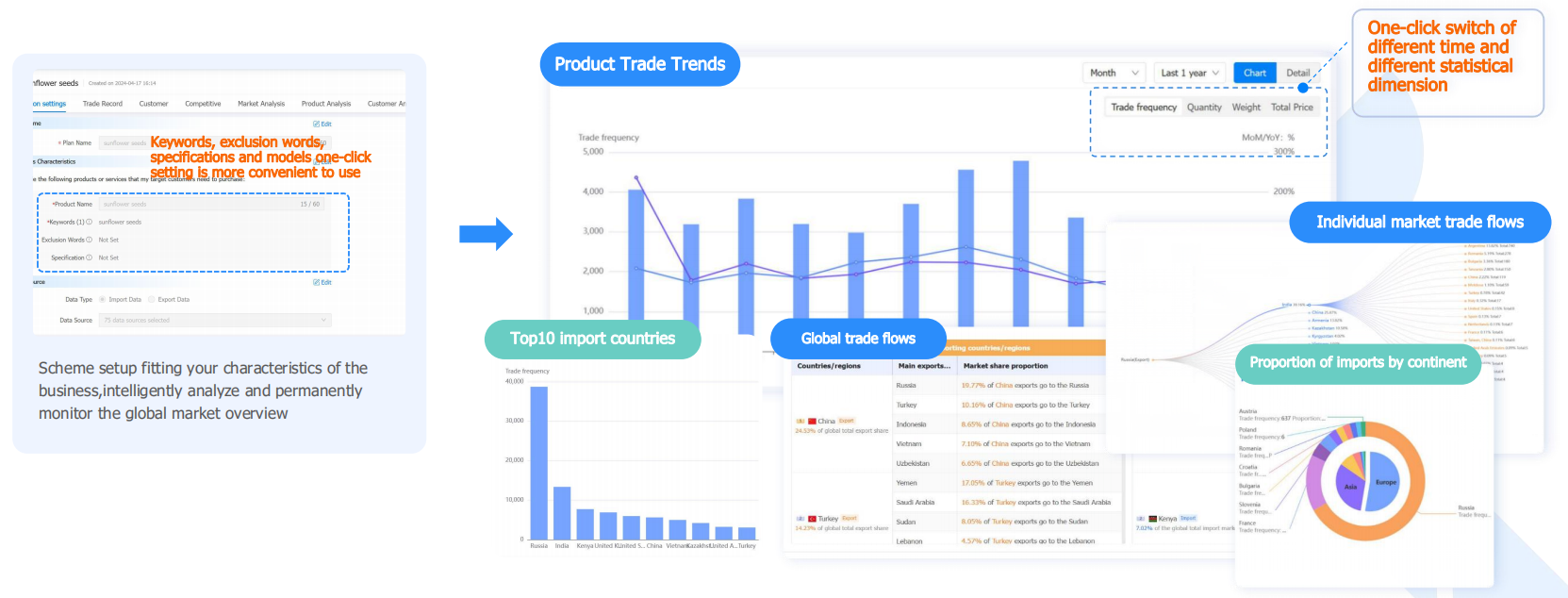 Trade Trends News
Trade Trends News
 10-07-2024
10-07-2024
International business refers to the trade and commercial transactions that occur across national borders. This dynamic field involves a multitude of activities such as exporting and importing goods and services, foreign direct investment (FDI), franchising, licensing, and managing cross-cultural operations. The primary objective of international business is to leverage global opportunities for growth, competitiveness, and profitability.

Key Components of International Business
Trade: This is the most fundamental aspect of international business, involving the exchange of goods and services between countries. Exports and imports are the key components, where countries sell what they produce efficiently and buy what they need or cannot produce effectively.
Foreign Direct Investment (FDI): This involves a company or individual from one country making a physical investment into building a factory or acquiring assets in another country. FDI is crucial for the transfer of technology, management skills, and the integration of international markets.
Franchising and Licensing: These are methods of expanding a business internationally without bearing the full costs and risks. Franchising allows an entity to use the name, products, and business model of the franchisor in another country, while licensing permits the licensee to produce and sell goods under the licensor's brand.
Global Supply Chain Management: This involves managing the flow of goods and services from suppliers to customers across multiple countries. It includes sourcing raw materials, production, distribution, and logistics, ensuring efficiency and cost-effectiveness.
Importance of International Business
Economic Growth: International business contributes significantly to the economic growth of countries. It creates jobs, increases income, and improves living standards by facilitating the exchange of goods, services, and capital.
Diversification: Engaging in international business allows companies to diversify their markets, reducing dependence on a single domestic market. This helps in mitigating risks associated with economic downturns and market saturation.
Innovation and Competitiveness: Exposure to global markets fosters innovation as companies strive to meet diverse consumer preferences and competitive pressures. This leads to the development of new products, services, and business processes.
Cultural Exchange: International business promotes cultural exchange and understanding by bringing people from different backgrounds together. This cross-cultural interaction enhances global cooperation and peace.
Challenges in International Business
Cultural Differences: Understanding and adapting to different cultural norms, business practices, and consumer behavior can be challenging for international businesses. Miscommunication and cultural misunderstandings can impact business operations.
Legal and Regulatory Compliance: Each country has its own set of laws and regulations governing business activities. Navigating these legal requirements, including trade tariffs, customs regulations, and labor laws, can be complex and time-consuming.
Political Risks: Political instability, changes in government policies, and geopolitical tensions can pose significant risks to international business operations. Companies must develop strategies to manage these uncertainties.
Currency Fluctuations: Exchange rate volatility can affect the profitability of international transactions. Businesses must employ effective hedging strategies to protect against adverse currency movements.
Conclusion
International business is a multifaceted domain that plays a crucial role in the global economy. It offers immense opportunities for growth, innovation, and cultural exchange while presenting unique challenges. Understanding the complexities of international trade, investment, and cross-border operations is essential for businesses looking to succeed in the global marketplace. By navigating these intricacies effectively, companies can harness the benefits of international business and contribute to the development and prosperity of the global economy.
From traditional data retrieval to constructing business scenarios, Tendata T-Insight employs multiple analysts to work for you.
With intelligent market analysis, it assists in saving analysts' time and your money.
Eliminate the need for manual and frequent searches and analyses. With Tendata, you can effortlessly grasp product trade trends, trade flows, top 10 import and export countries with a single click, understand market trends, and identify high-value regions.

Category
Leave Message for Demo Request or Questions


 T-info
T-info T-discovery
T-discovery

 My
Tendata
My
Tendata Market Analysis
Market Analysis Customer
Development
Customer
Development Competitor
Monitoring
Competitor
Monitoring Customer Relationship
Customer Relationship




































































































































